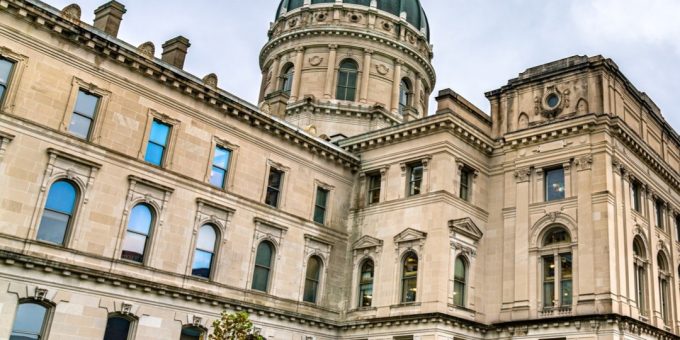
INDIANAPOLIS — The 2023 session of the Indiana General Assembly has reached its midpoint, and the Indiana Chamber of Commerce says it’s pleased with the overall focus of legislators and where things currently stand.

Kevin Brinegar, the organization’s president, and CEO provides his analysis of the activity as it relates to key legislation impacting the business community and its workforce:
Two early and successful policy wins
“One of our top priorities, Senate Bill 2, became law last week and provides tax relief in excess of $100 million to most Hoosier businesses (the pass-through entities). That’s incredibly impactful for the state’s small and mid-size employers.
“On the defensive side, we were successful in advocating against a particularly onerous bill (Senate Bill 330) that would have subjected contractors on public and tax-advantaged projects – including tax increment financing districts – to additional reporting requirements. It called for submitting weekly wage data to the local unit of government for that particular project, which then would have become public information.
“All sorts of projects and businesses, including even landscapers, would have been caught up in this ploy by the unions to get wage data from non-union contractors in particular, as well as individuals who work on public projects. Senate Bill 330 was far too broad in scope and would have added burdensome regulation that was simply not necessary; it’s good that it didn’t have the votes to move on.”
Growing the talent pipeline
“We hear it from employers, and we see it in virtually every education and workforce statistic. It’s that Indiana has a massively leaking talent pipeline. We are very encouraged by the consensus at the Statehouse in 2023 to address this troubling trend.
“House Bill 1002 features a number of provisions that include expanding work-based learning opportunities, making high school graduation requirements more relevant to real-world expectations, and creating funding flexibility for students to complete on-the-job training and postsecondary credentials.
“House Bill 1449 and Senate Bill 435 would automatically enroll eligible low-income students in the state’s 21st Century Scholars program, which pays for up to four years of in-state college tuition or postsecondary training for eligible students who enroll and complete a short list of preparation activities. Established more than three decades ago, the Scholars program has emerged as one of Indiana’s most effective strategies in driving postsecondary participation and completion. Unfortunately, less than half of eligible students enroll in the program in middle school due to a lack of awareness or adequate support.
“Auto-enrolling 21st Century Scholars could prove to be a game changer toward ensuring that every Hoosier, regardless of financial means, has the aspiration and motivation to earn a postsecondary credential and an equitable opportunity to do so.”
Mental health programs and funding (cigarette tax increase a possibility)
“Mental health concerns cost Indiana employers $885 million annually in lost productivity and $708 million per year in direct health care costs. Senate Bill 1 helps put a framework in place to combat these issues and we couldn’t be more supportive of this effort.
“There is yet to be dedicated funding set aside to support the recommendations of the Behavioral Health Commission and particularly establishing and supporting the new 9-8-8 mental health hotline. That hotline and more (of the Commission’s recommendations) could easily be funded with a cigarette tax rate increase of $2 – putting Indiana at $3 per pack (up from the current $1).
“A study just released by the Fairbanks Foundation found that smoking costs Indiana businesses $3.1 billion a year in extra health care costs, absenteeism, and lost productivity. The Indiana Chamber has long supported an increase in the cigarette tax for the health of Hoosiers (a substantially higher tax lowers a state’s smoking rate substantially) and now for that increased revenue to pay for the 9-8-8 hotline and other mental health and public health initiatives.
“We are encouraged that some discussions are going on in the Senate, where that idea has been shut down in the past, even though the House has passed it in two different sessions. The Indiana Chamber will continue to press legislators on raising the cigarette tax, which is the lowest among our surrounding states and one of the lowest in the country.”
State budget
“What the House passed is very favorable and in sync with much of what the Governor laid out in his agenda. We know the Senate will put its stamp on it and change some things, but there is overall consensus on many of the items that will help businesses and citizens alike. The current economic development allocations, for example, are strong and recognize the tools that are needed for the state to complete. And the READI (Regional Economic Acceleration and Development Initiative) 2.0 funding seems well established and everyone is on board there, which is welcome news for areas all around the state.”



